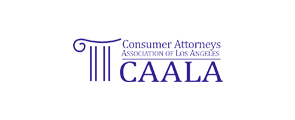
Known as Good Samaritans, people who go out of their way to help others in times of dire need without any expectation of personal gain are held in high regard (and rightfully so) by society and also the law. Because of this, a number of states (including California) enacted Good Samaritan laws specifically to protect anyone who voluntarily renders assistance to another person in an emergency. Unfortunately, California’s original attempt at such provisions was deeply flawed, and even the new changes to the law have some unresolved issues. This makes is extremely important to get the advice of a skilled attorney if you find yourself in the position of having been a Good Samaritan yourself, and now are worried about what the legal ramifications might be.
California’s first pass at Good Samaritan law stated that no one could be held liable in civil court for any act or omission done while providing “emergency care” to another individual. This law was challenged when a Good Samaritan attempted to help pull a victim of a car accident from their vehicle because she thought the car would catch fire. The victim ended up suffering paralysis, which they alleged was actually caused by the Good Samaritan in the act of pulling the victim from the vehicle. The California Court of Appeal held that the Good Samaritan could be sued because the law only applied to people rendering “emergency medical care” and since pulling the person from the car was not medical in nature the law did not provide any protection.
Because of the unwanted outcome in this case, California lawmakers reworded the law so that it now includes anyone providing “emergency medical or nonmedical care or assistance”. However, it is important to note that the new law still doesn’t apply in all cases. Anyone whose actions or omissions constitute “willful or wanton misconduct or gross negligence” is an exception (gross negligence being a reckless disregard for the safety of others).
This leaves a number of areas of uncertainty in terms of when the law protects you if you decide to help someone who has been injured in an accident and when it allows you to be sued. Let’s say you decide to help a victim of a car accident but have no medical training, is that enough to constitute gross negligence? Alternatively, should you decide not to administer certain types of care to that same individual, could simply that omission be considered grossly negligent? It’s precisely this uncertainty that means it is imperative that if you have decided to render aid to someone involved in an accident or other emergency situation that you speak to a qualified attorney who can properly advise you and ensure you don’t get transformed from the hero of an emergency situation into another victim of it – this time in the courtroom.
For over 30 years Slatter Law Firm has been that qualified attorney. We know the steps to take, and will be there to look after you, when you’ve decided to look after someone else and now are worried about the legal consequences. As a boutique firm, when you call Slatter Law you can speak to real attorneys (not just their secretaries) and even a founding partner -giving you real access to real legal advice when you need it. If you or someone you know has acted as a Good Samaritan, please call us today for your free consultation at (310) 405-0964 or toll-free at (888) 293-0404.






